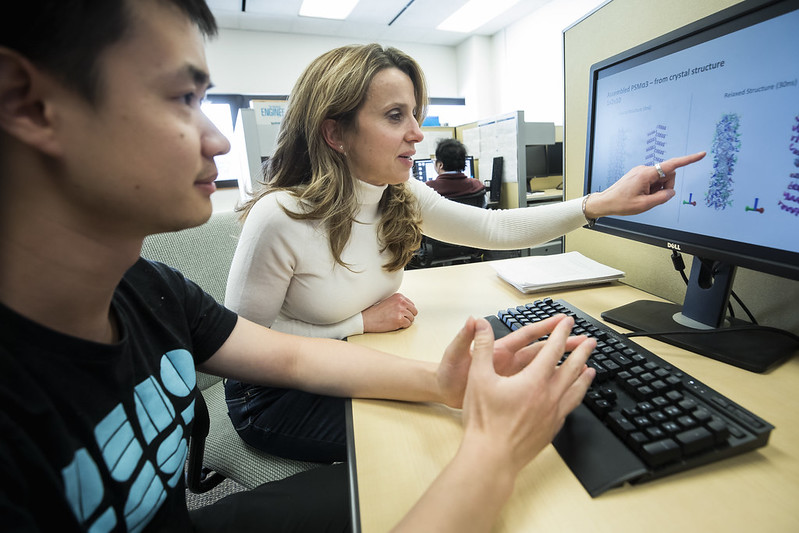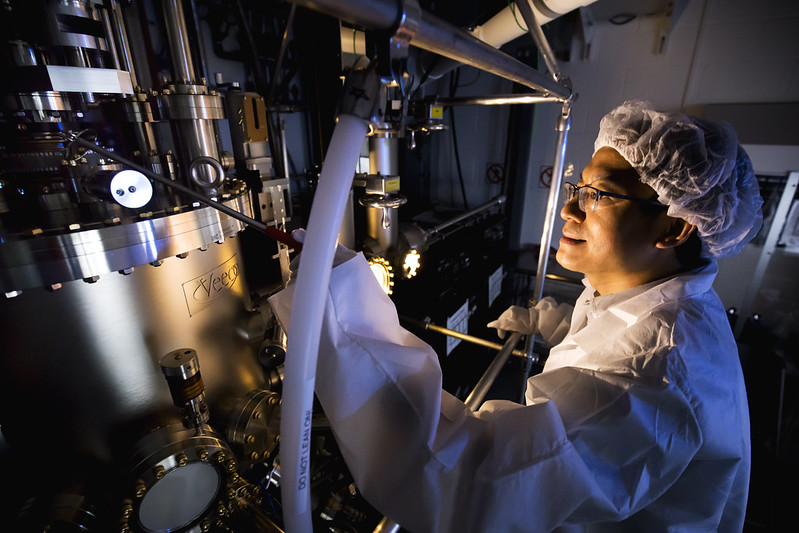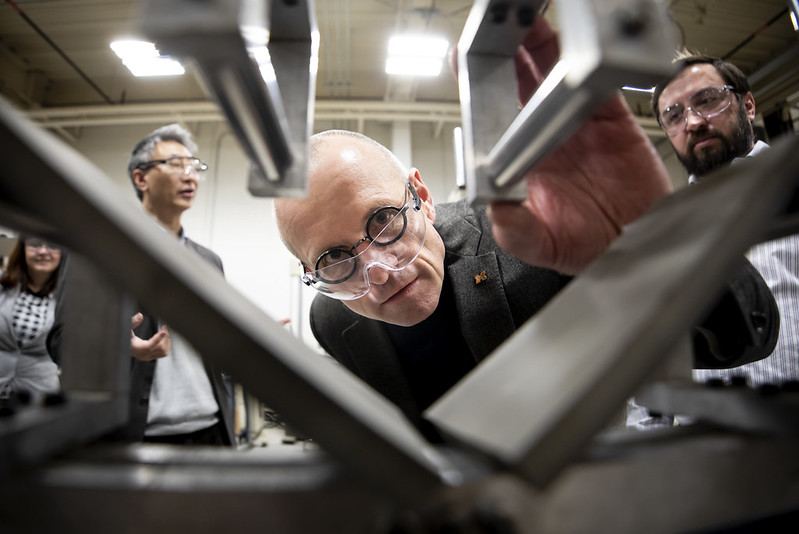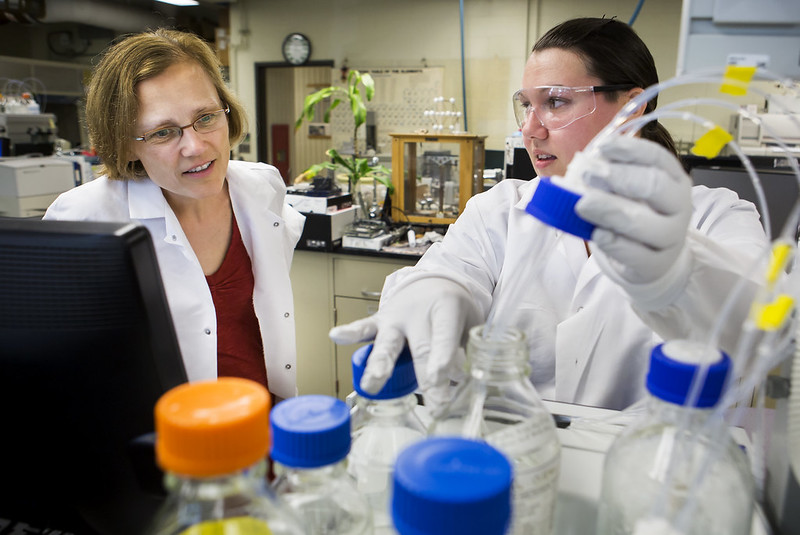Blue Sky initiatives
High risk, high reward
Michigan Engineering has set its sights on enhancing its culture of creativity, innovation and daring through its Blue Sky Initiative funding model.
Introduced in late 2017, the Blue Sky Initiative supports transformational concepts – high-risk, high-reward ideas. Selected research teams will progress through a series of defined milestones to consistently assess the development of their concepts. The initiative will give teams the resources to aggressively pursue an idea to either reinforce or define Michigan’s leadership position in a wide range of areas.
Successful projects will explore and secure external investments to develop and expand the concept through external partners.
The Blue Sky Initiative is one of three funding models introduced through the Research Pillar of Michigan Engineering’s Strategic Vision.

Accelerating the response to biothreats: Machine learning as screening for antimicrobials
Principal Investigator: Angela Violi, Professor of Mechanical Engineering, Professor of Chemical Engineering, Professor of Macromolecular Science and Engineering, College of Engineering and Professor of Biophysics, College of Literature, Science, and the Arts
Using a neural network and machine learning, the research team will streamline the process of identifying promising nanoparticles to serve as the next generation of antimicrobials. The work could curb dangerous drug-resistant bacteria, lower drug R&D costs and shorten the time it takes to get new effective medications on the market. This next generation drug development method will save lives and put both the College of Engineering and U-M Medical School at the heart of industry innovation.
To learn more about this research, please visit the project website.

Scalable quantum engineering and manufacturing
Principal Investigator: Zetian Mi, Professor of Electrical Engineering and Computer Science
Although we live in a quantum world, there is very little we know about how things work at the quantum level. Zetian Mi, professor of electrical engineering and computer science, and his team are changing that. Their project, Scalable Quantum Engineering and Manufacturing (SQEM), has been selected for the Blue Sky Initiative to develop new ways to control and use quantum particles such as excitons, polaritons, and dropletons.
To learn more about this research, please visit the project website.

The Global CO2 Initiative: Transforming a liability into an opportunity
Principal Investigator: Volker Sick, Arthur F. Thurnau Professor, Professor of Mechanical Engineering, College of Engineering and Associate Vice President for Research, Natural Sciences and Engineering, Office of the Vice President for Research
Even if CO2 emissions are curbed today, it will be impossible to reach Paris Agreement climate goals unless ways to remove carbon dioxide from the environment are developed. The Global CO2 Initiative at U-M will identify and pursue commercially sustainable approaches that have the potential to reduce global CO2 emissions by as much as 10 percent per year.
To learn more about this research, please visit the project website.

Remaking water infrastructure by focusing on microbial biomes: Actionable science by linking microbial biomes across water infrastructure, natural water, and humans
Principal Investigator: Lut Raskin, Altarum/ERIM Russell D O’Neal Professor of Engineering and Professor of Civil and Environmental Engineering
By managing microbial biomes in the water systems in our cities, scientists can harness their beneficial roles and reduce human health risks. The project could address serious concerns linked to water infrastructure failures like the outbreak of Legionnaires’ disease during the Flint water crisis and infectious diseases associated with sewage exposure following hurricanes in Texas and Puerto Rico.
To learn more about this research, please visit the project website.
Blue Sky Initiative news
February 10, 2021
Research pillar
Michigan Engineering has set its sights on enhancing its culture of creativity, innovation, and daring and is implementing a unique approach to investing in faculty research as a key part of the plan.